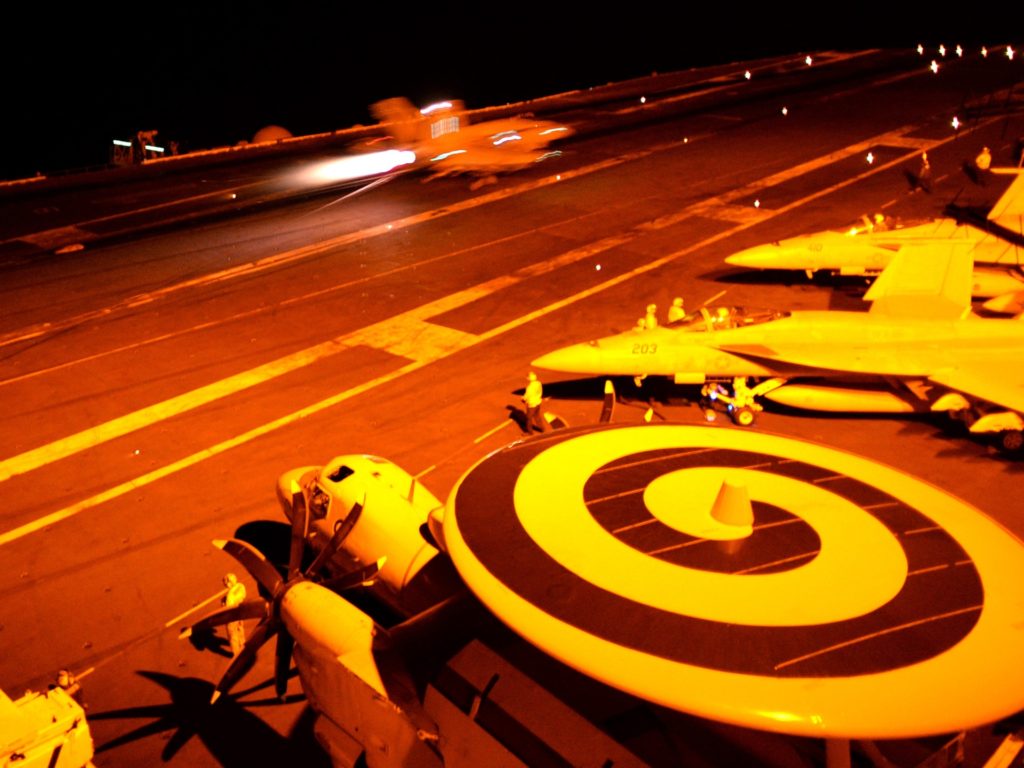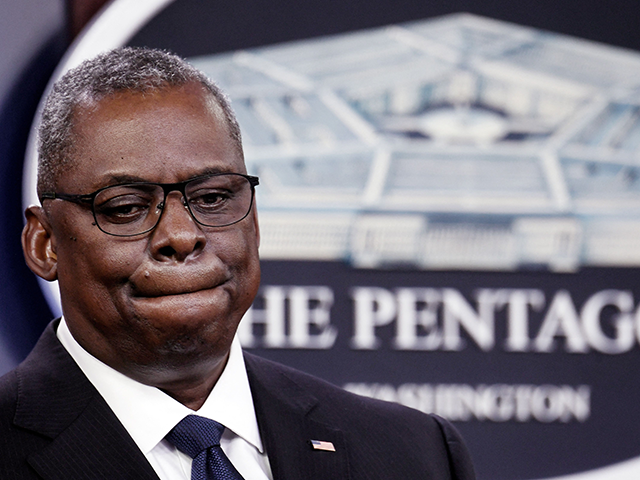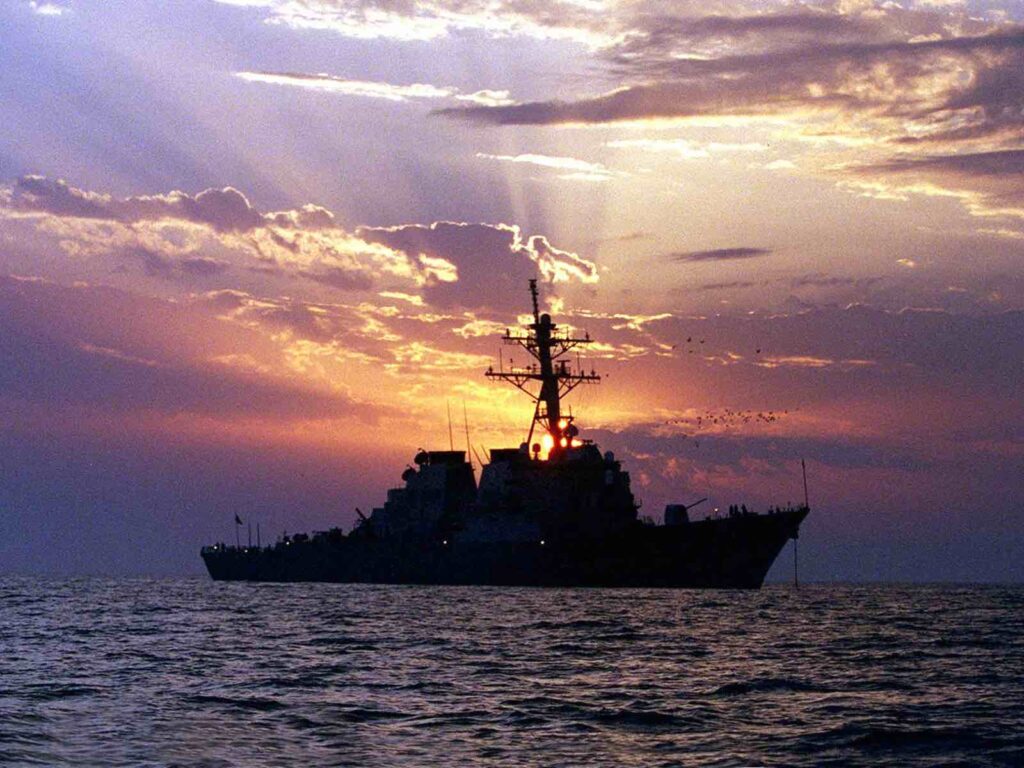The Pentagon is concerned about an escalation of attacks against United States troops in the Middle East in the days ahead, officials said, as Israel prepares a ground invasion into the Gaza Strip in response to the October 7 terrorist attacks by Hamas.
“We’ve seen rocket and [unmanned aerial vehicle] attacks against bases housing U.S. personnel in Iraq and Syria. And what you’ve heard from the president, from Secretary Blinken, from Secretary Austin, and many of the spokespeople across the U.S. government is our concern about the escalation of these attacks in the days ahead,” said a senior defense official at a briefing on Monday.
“We see a prospect for much more significant escalation against U.S. forces and personnel in the near term. And let’s be clear about it, the road leads back to Iran. Iran funds, arms, equips and trains militias and proxy forces, all across the region that have consistently undermined the stability, cost in civilian life, and at a cost the entire region of security and stability,” the official added.
Pentagon officials were at first hesitant to publicly link the attacks on U.S. facilities to the Israel-Hamas conflict.
However, on Monday, Pentagon Press Secretary Brig. Gen. Pat Ryder said the Pentagon concern about escalation was based on several groups throughout the region publicly saying, “If there is a ground incursion, we are going to scale up our attacks.”
The Pentagon has taken a number of steps in recent days to prepare for the expected escalation.
Those steps include moving the USS Dwight D. Eisenhower Carrier Strike Group to the region, in addition to having the USS Gerald Ford Carrier Strike Group in the Eastern Mediterranean Sea.

An F/A-18F Super Hornet lands on the U.S. Navy’s super carrier USS Dwight D. Eisenhower (CVN-69) (“Ike”) in the Mediterranean Sea on July 7, 2016. (ALBERTO PIZZOLI/AFP via Getty Images)
They also include deploying a Terminal High Altitude Area Defense (THAAD) Battery and additional Patriot battalions to the Middle East.
The Pentagon has also put an additional number of U.S. forces on prepare-to-deploy orders to ensure a “rapid response” if required, officials said. A senior military official said the forces are “largely Command and Control units” that would give leaders options for various missions for forces already in the region.
Officials said those measures are threefold — to assist Israel, to protect U.S. troops in the region, and to deter actors from widening the conflict.
The deterrence measures do not appear to be working, however.
On Tuesday afternoon, Israel announced that rockets were launched at Israel’s Golan Heights from Syria.
#BREAKING: Rockets launched from Syria at Israel’s Golan Heights
— Israel War Room (@IsraelWarRoom) October 24, 2023
The Jerusalem Post reported that Israeli artillery forces struck the “source” of rocket fire from Syria. According to the outlet, the Israel Defense Force said two rockets were launched at Israel from Syria and fell in open fields.
In addition, the Post reported that the IDF targeted a terrorist cell that fired anti-tank missiles at Israel from within Lebanon. The Israeli military responded with artillery forces and destroyed the weaponry used to launch the missiles, the paper reported.
In addition to the strikes against Israel, Iran-backed groups have launched at least a half dozen attacks against United States bases in Iraq, and just last week, the U.S. guided missile destroyer USS Carney shot down three rockets fired by Iran-backed Houthi forces in Yemen, bringing U.S. troops directly into kinetic action with Iran-backed forces.
According to the Wall Street Journal, the Houthis fired five Iranian-provided cruise missiles and launched about 30 drones towards Israel. The USS Carney shot down four of the missiles, while a fifth was intercepted by Saudi Arabia.
So far, there have been no deaths as a result of the attacks against the U.S. facilities, but an American contractor died in Iraq after suffering a heart attack while sheltering in place.
Pentagon officials are attributing the attacks to Iran.
A defense official said:
It’s been well-documented and you’ve heard U.S. officials across the podiums as well as policy leaders for years talk about Iran’s funding, equipping, guidance and direction to partners and proxies across the region. That includes Lebanese Hezbollah, militia groups in Iraq and Syria, as well as the Houthis in Yemen. So I think it’s fair to say when you see this uptick in activity and attacks by many of these groups, there’s Iranian fingerprints all over it.
Warnings from the Biden administration — from the president on down — appear to be falling on deaf ears.
President Joe Biden, during a visit to Israel last week, warned other actors not to attack Israel.
“My message to any state or any other hostile actor thinking about attacking Israel remains the same as it was a week ago: Don’t. Don’t. Don’t,” he said on October 18.
Since then, the message has been repeated by other senior administration officials. “Our advice to those who might seek to exploit the situation or amplify the conflict is simple: Don’t,” the senior defense official said Monday.
Follow Breitbart News’s Kristina Wong on ”X”, Truth Social, or on Facebook.


COMMENTS
Please let us know if you're having issues with commenting.